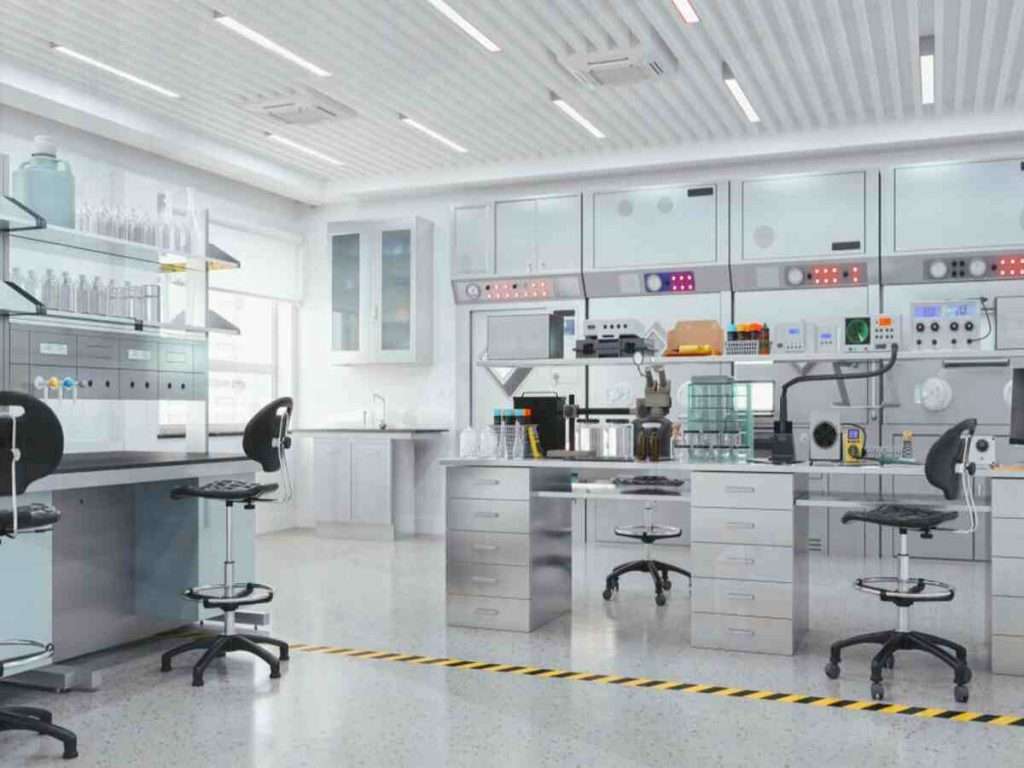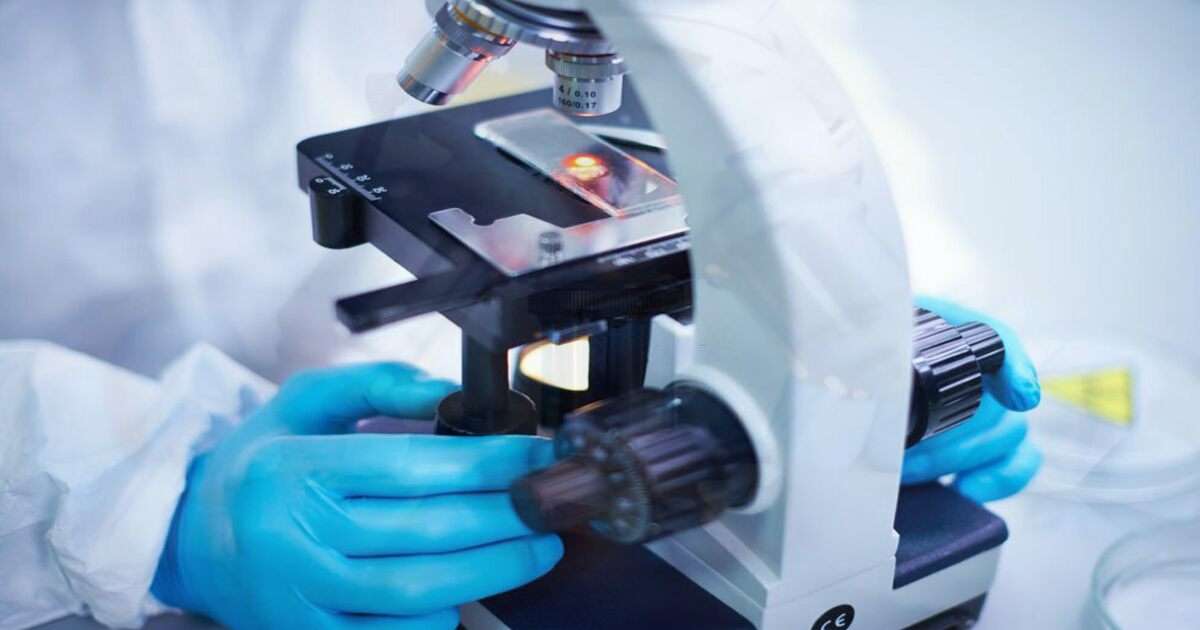Medical laboratory technology is a highly specialized field that diagnoses and treats illnesses and diseases. It involves using sophisticated laboratory equipment, from microscope slides to automated analyzers, to analyze patient samples. Laboratory technicians are trained to accurately interpret results and provide timely, accurate diagnoses for medical professionals. As such, they play an essential role in diagnosing and treating patients. Medical laboratory technologists must be knowledgeable about the specialized equipment. They use the tests they perform and comprehensively understand medical terminology and principles.
They are also responsible for maintaining accurate records of test results, following safety protocols, and ensuring that all laboratory procedures are up to standard. As technology advances, medical laboratory technologists must stay updated with the latest tools and techniques used in their field. Additionally, they must work cooperatively with other laboratory technicians and healthcare professionals to provide accurate patient diagnosis and treatment plans. To become a medical laboratory technologist, individuals must obtain an associate’s or bachelor’s degree in medical laboratory technology from an accredited institution. After graduating, technologists must pass a certification exam and be registered with a professional organization such as the American Society for Clinical Laboratory Science or the National Credentialing Agency for Medical Laboratory Personnel. Once certified, technologists may pursue additional certifications in specialized areas of laboratory medicine such as hematology, chemistry, or immunology.
Clinical Laboratory Science
Clinical laboratory science is a vital field within the healthcare industry that plays a crucial role in disease diagnosis, monitoring, and treatment. Professionals in this field, clinical laboratory scientists or medical laboratory technologists, employ advanced techniques and technologies to analyze patient samples, such as blood, urine, and tissue, providing essential information for accurate medical decisions.
In the realm of clinical laboratory science, diagnostic accuracy is paramount. These skilled professionals use various laboratory techniques and equipment to detect and analyze markers of health and disease. Clinical laboratory scientists contribute significantly to patient care by performing complex molecular tests, examining cellular structures under a microscope, or utilizing automated analyzers.
The continuous advancements in healthcare technology have revolutionized clinical laboratory science, enabling faster and more precise testing. This field is about running tests, interpreting results, troubleshooting issues, and ensuring the quality and reliability of the data generated. The interdisciplinary nature of clinical laboratory science requires collaboration with other healthcare professionals to provide a comprehensive understanding of a patient’s health status.
In summary, clinical laboratory science is the backbone of modern medicine, providing invaluable information for medical practitioners to make informed decisions about patient care. As technology evolves, so does the role of clinical laboratory scientists, who remain dedicated to advancing healthcare through accurate and reliable diagnostic testing.
Healthcare Technology
Healthcare technology is at the forefront of transforming how medical services are delivered, making significant strides in enhancing patient care, improving efficiency, and advancing overall healthcare outcomes. In today’s rapidly evolving landscape, healthcare technology encompasses a broad spectrum of innovations that leverage digital solutions to streamline processes and provide more personalized and effective medical care.
One key aspect of healthcare technology is the integration of electronic health records (EHRs), facilitating seamless information exchange among healthcare professionals. EHRs enhance communication, reduce errors, and enable a comprehensive view of a patient’s medical history, fostering better-informed decision-making.
Telemedicine, another pivotal component of healthcare technology, has become increasingly prominent, especially in the context of global events emphasizing the importance of remote healthcare services. This allows patients to consult with healthcare professionals virtually, expanding access to medical expertise and reducing the burden on traditional healthcare infrastructure.
Medical imaging technology advances, enabling more accurate diagnostics and treatment planning. Innovations such as 3D imaging, artificial intelligence (AI)-assisted diagnostics, and remote monitoring devices contribute to early detection and better management of various medical conditions.
The ongoing development of wearable devices and health apps empowers individuals to take an active role in their health. From monitoring vital signs to tracking fitness and nutrition, these technologies promote preventive care and contribute to a more holistic approach to wellness.
In conclusion, healthcare technology is a dynamic force reshaping the medical landscape. EHRs, telemedicine, advanced imaging, and digital health tools drive a paradigm shift toward more efficient, accessible, and patient-centric healthcare delivery.
Diagnostic Testing (medical laboratory technology)
Diagnostic testing is pivotal in modern healthcare, serving as a cornerstone for accurate and timely medical assessments. These tests are instrumental in identifying the presence or absence of diseases, evaluating organ function, and guiding healthcare professionals in formulating effective treatment plans.
In the realm of diagnostic testing, precision is paramount. Advanced laboratory techniques, such as molecular diagnostics and genetic testing, provide intricate insights into an individual’s health at a molecular level. These tests aid in disease detection and enable personalized medicine, allowing tailored interventions based on an individual’s genetic makeup.
The advent of rapid diagnostic tests has revolutionized patient care by delivering quick results, crucial in emergencies or situations where swift decisions are essential. These tests, ranging from point-of-care diagnostics to at-home testing kits, contribute to faster and more efficient healthcare delivery.
Imaging diagnostics, including X-rays, MRIs, and CT scans, offer non-invasive methods to visualize internal structures, aiding in diagnosing conditions such as fractures, tumours, or cardiovascular issues. The integration of artificial intelligence in diagnostic testing further enhances accuracy and efficiency by analyzing vast datasets to identify patterns and anomalies.
In summary, diagnostic testing is the linchpin of modern medicine, providing healthcare professionals with the tools to diagnose and precisely monitor conditions. As technology advances, the landscape of diagnostic testing evolves, promising even more sophisticated and efficient methods for accurate medical assessments.
Biomedical Science
Biomedical science is a multidisciplinary field that merges biology, medicine, and technology to explore the intricacies of the human body and advance our understanding of health and disease. Professionals in biomedical science, often called biomedical scientists, research to unravel the molecular and cellular mechanisms underlying various medical conditions, paving the way for innovative diagnostic and therapeutic solutions.
Biomedical science’s core is the study of biomolecules, cellular processes, and genetics. Researchers in this field investigate how these elements interact in normal physiological states and how disruptions can lead to diseases. The insights from biomedical science research contribute significantly to developing new medications, treatment strategies, and diagnostic tools (medical laboratory technology).
One key focus of biomedical science is personalized medicine, tailoring healthcare interventions to individual genetic and molecular profiles. This approach allows for more precise and effective treatments, minimizing side effects and improving overall patient outcomes.
In addition to laboratory research, biomedical scientists often engage in clinical trials, collaborating with healthcare professionals to translate research findings into practical applications. This bridge between research and clinical practice accelerates the development of cutting-edge therapies and medical technologies.
Biomedical science is instrumental in addressing global health challenges, from infectious diseases to chronic conditions. Its interdisciplinary nature fosters collaboration between scientists, clinicians, and industry partners, creating a dynamic ecosystem for advancing human health.
In summary, biomedical science is a dynamic and evolving field cornerstone of medical progress. Through rigorous research and collaboration, biomedical scientists contribute significantly to the continuous improvement of healthcare, offering new perspectives and solutions to enhance the quality of life for individuals worldwide.
Laboratory Medicine (medical laboratory technology)
Laboratory medicine is a critical aspect of modern healthcare, encompassing various diagnostic and investigative techniques central to disease detection, monitoring, and treatment. It involves the analysis of various biological samples, such as blood, urine, and tissues, using advanced technologies and methodologies to provide essential information for medical decision-making.
In laboratory medicine, clinical laboratories are hubs of activity where skilled professionals, including medical laboratory technologists and pathologists, meticulously examine samples to identify markers of health and disease. These laboratories utilize cutting-edge equipment and techniques to perform diverse tests, from routine blood screenings to complex molecular analyses.
The results generated in laboratory medicine are crucial for accurate diagnoses and treatment planning. Whether confirming the presence of infections, assessing organ function, or monitoring the effectiveness of therapies, laboratory tests provide invaluable insights into a patient’s health status. Laboratory medicine is also integral to preventive care, with screenings and diagnostic tests aiding in the early detection of conditions before symptoms manifest.
The interdisciplinary nature of laboratory medicine involves collaboration between laboratory professionals and healthcare providers to ensure the seamless integration of laboratory data into patient care. As technology advances, laboratory medicine evolves, embracing innovations such as automation, digital pathology, and personalized medicine to enhance the precision and efficiency of diagnostic processes.
In conclusion, laboratory medicine is a cornerstone of modern healthcare, providing the scientific foundation for clinical decision-making and contributing significantly to patients’ overall well-being. Its continuous evolution is essential for staying at the forefront of medical advancements and improving the quality of healthcare services globally.



